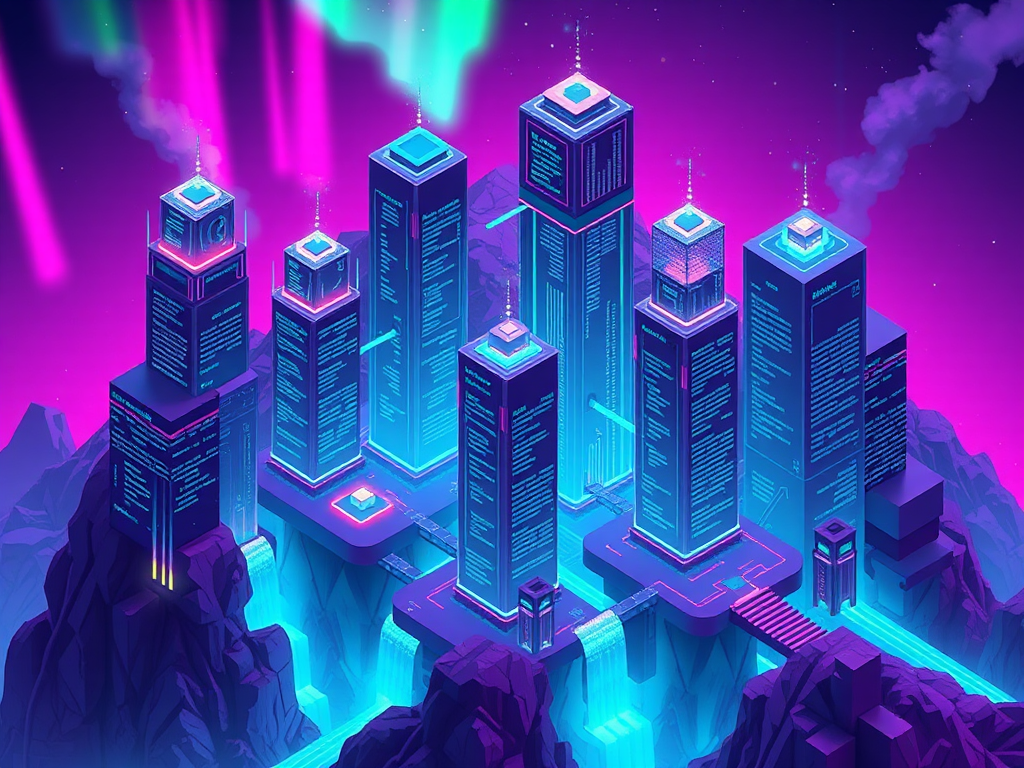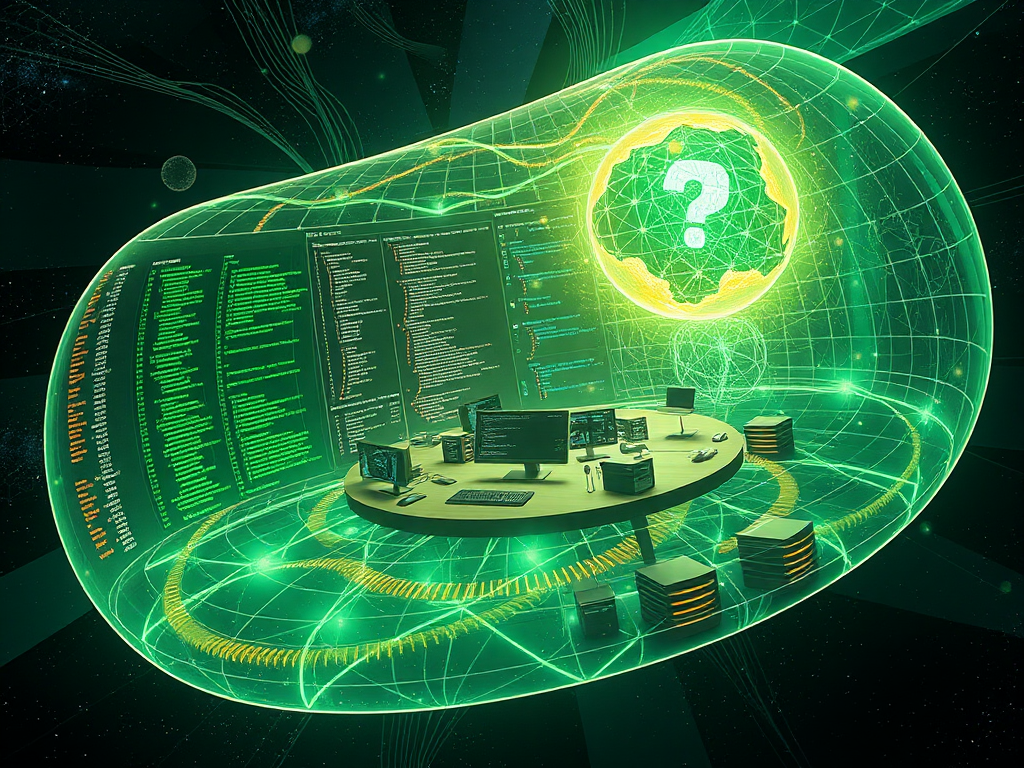Framework Selection Considerations
As a Python developer, have you ever struggled with choosing the right web development framework? I understand this confusion. I remember when I first encountered web development, I also hesitated for a long time when faced with choices like Django and Flask. Today, let's delve deep into the topic of Python web development.
You've probably heard this saying: Django is an all-around player, while Flask is a lightweight thoroughbred. While this metaphor is vivid, it might not be clear enough for beginners. Let's understand them in more down-to-earth terms.
Imagine you're building a house - Django is like a fully furnished home with everything from furniture to appliances, ready for you to move in. Flask, on the other hand, is like an empty plot where you can build and decorate entirely according to your own ideas. Both choices have their merits; the key lies in your specific needs.
Technical Analysis
Speaking of Python's advantages in web development, we must mention its code readability. Have you ever encountered a situation where you took over a project and were confused by the code left by your predecessor? Python's syntax is like pseudocode written in English, making core logic immediately comprehensible.
For example, look at this Django view code:
def article_list(request):
articles = Article.objects.all().order_by('-created_time')
return render(request, 'blog/article_list.html', {'articles': articles})
Even beginners can roughly guess that this code retrieves all articles and sorts them by creation time. This intuitive nature is especially important in team collaboration.
In actual development, I found Django's ORM (Object-Relational Mapping) system particularly useful. I still remember my excitement when I first completed complex database queries without writing raw SQL. For example:
articles = Article.objects.filter(
category__name='Python',
views__gt=1000
).select_related('author')
This code is not only intuitive, but Django also automatically handles security issues like SQL injection. That's why I think Django is particularly suitable for beginners.
Practical Application
In real projects, I discovered that web development is more than just writing code. I remember once when our team received an e-commerce project requiring a platform that could support tens of thousands of users online simultaneously. That's when Python's asynchronous programming capabilities came in handy.
Here's an example of using an asynchronous view to handle high-concurrency requests:
async def product_list(request):
products = await Product.objects.filter(
status='active'
).prefetch_related('category').to_list()
return JsonResponse({
'products': [
{
'id': p.id,
'name': p.name,
'price': p.price,
'category': p.category.name
} for p in products
]
})
This code looks simple but involves many core concepts of modern web development: asynchronous programming, database query optimization, JSON API design, etc.
Development Trends
Regarding future trends in Python web development, I think AI integration is the most noteworthy direction. Many web applications are now trying to integrate machine learning features. For example, we recently integrated an article recommendation system in a content platform project:
from sklearn.feature_extraction.text import TfidfVectorizer
from sklearn.metrics.pairwise import cosine_similarity
class ArticleRecommender:
def __init__(self):
self.vectorizer = TfidfVectorizer()
def recommend(self, article_text, article_pool):
# Vectorize all articles
vectors = self.vectorizer.fit_transform(
[article_text] + [a.content for a in article_pool]
)
# Calculate similarity
similarity_scores = cosine_similarity(vectors[0:1], vectors[1:])
# Return the 5 most similar articles
top_indices = similarity_scores[0].argsort()[-5:][::-1]
return [article_pool[i] for i in top_indices]
This kind of AI integration is becoming increasingly common. I believe future web developers will need to understand basic machine learning knowledge in addition to traditional web development skills.
Practical Experience
From practical development, I'd like to share several insights with you:
First, regarding project structure organization. A good project structure can greatly improve development efficiency. I usually organize Django projects like this:
project_name/
├── apps/
│ ├── user/
│ ├── product/
│ └── order/
├── utils/
│ ├── decorators.py
│ └── helpers.py
├── static/
├── templates/
└── config/
├── settings/
│ ├── base.py
│ ├── local.py
│ └── production.py
├── urls.py
└── wsgi.py
This structure clearly separates business logic, utility functions, and configuration files, facilitating team collaboration and code maintenance.
Second, regarding performance optimization. When handling large amounts of data, pay special attention to query optimization. For example, use select_related and prefetch_related to reduce database queries:
def get_orders(user):
orders = Order.objects.filter(user=user)
for order in orders:
# This will generate N additional queries
print(order.product.name)
def get_orders(user):
orders = Order.objects.filter(
user=user
).select_related('product')
for order in orders:
# No additional queries
print(order.product.name)
Growth Suggestions
As a Python web developer, I suggest following this learning path:
- First master Python basics, especially object-oriented programming concepts
- Learn the basics of HTML, CSS, and JavaScript
- Start with Django to build a complete web development understanding
- Learn database design and SQL basics
- Dive deep into advanced topics like web security and performance optimization
- Understand deployment tools like Docker and Kubernetes
- Learn machine learning basics to prepare for AI integration
This learning path might seem long, but don't rush. I remember when I first started learning, I also took it step by step. The key is to practice hands-on and solve problems promptly.
Technical Outlook
Looking ahead, I believe Python web development will evolve in several directions:
First is the return of Server-Side Rendering (SSR). With the popularity of frontend-backend separation architecture, we've found that SSR still has its advantages in certain scenarios, especially in SEO. Django's template system excels in this aspect:
from django.template.loader import render_to_string
from django.http import HttpResponse
def article_detail(request, article_id):
article = Article.objects.get(id=article_id)
html = render_to_string('article_detail.html', {
'article': article,
'meta_description': article.summary[:160],
'meta_keywords': ','.join(article.tags.names())
})
return HttpResponse(html)
Second is the widespread application of WebSocket. Modern web applications increasingly need real-time communication features. Django Channels provides excellent WebSocket support:
from channels.generic.websocket import AsyncWebsocketConsumer
import json
class ChatConsumer(AsyncWebsocketConsumer):
async def connect(self):
await self.channel_layer.group_add(
"chat_room",
self.channel_name
)
await self.accept()
async def receive(self, text_data):
text_data_json = json.loads(text_data)
message = text_data_json['message']
await self.channel_layer.group_send(
"chat_room",
{
"type": "chat_message",
"message": message
}
)
Third is the popularity of microservice architecture. We might see more Python microservice applications. FastAPI is a great choice:
from fastapi import FastAPI
from pydantic import BaseModel
app = FastAPI()
class Item(BaseModel):
name: str
price: float
@app.post("/items/")
async def create_item(item: Item):
return {"message": f"Created item: {item.name}"}
Experience Summary
After years of Python web development experience, I want to share several insights:
- Choose frameworks based on project requirements, don't blindly chase new technologies
- Code maintainability is more important than performance unless performance becomes a bottleneck
- Consider team collaboration when writing code; comments and documentation are important
- Security is always the top priority, stay updated on security updates
- Maintain a learning attitude, technology updates quickly
Finally, I want to say that Python web development is a very interesting field. It not only allows you to implement various creative ideas but also helps you build systematic thinking. I hope this article gives you some inspiration, and welcome to share your development experience in the comments.
What do you think is the biggest challenge in Python web development? Feel free to discuss in the comments.
>Related articles




